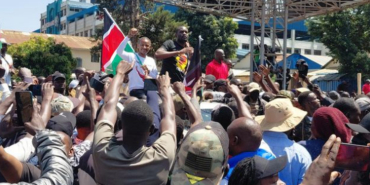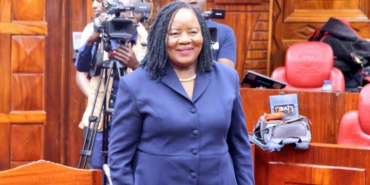Kenya High Court Freezes Issuance of New Digital IDs

The High Court has temporarily halted the implementation of new digital IDs and advised the government against registering individuals or issuing new generation IDs.
Justice John Chigiti's orders come in response to an application filed by the Katiba Institute at the Milimani Law Court. To comply with section 31 of the Data Protection Act, the government's implementation of the Maisha Namba Cards has been paused until a thorough data protection impact assessment has been conducted. Additionally, the Katiba Institute has contended that the Registration of Persons (Amendment) Regulations, 2023, and Birth and Deaths (Amendment) Regulations, 2023, were illicitly adopted and violated the constitution.
According to their statement, the respondents are obligated by section 31 of the Data Protection Act to carry out a data protection impact assessment before engaging in any data processing that poses a significant risk to the rights and freedoms of individuals. This assessment should consider factors such as the nature, extent, context, and objectives of the data processing. The Maisha Namba and the Huduma Namba require Kenyans to provide personal information and biometric data, including their date of birth, gender, facial image, details about their parents, and contact information.
In an attempt to expedite the execution of Maisha Namba, the Respondents published the Registration of Persons (Amendment) Regulations, 2023 and Birth and Deaths (Amendment) Regulations, 2023 on October 25, 2023. Katiba Institute maintains that these regulations encroach upon Article 94(6) of the Constitution. According to court documents, the respondents have exceeded their authority by using regulations to modify primary legislation and have violated the Statutory Instruments Act by enacting regulations. Additionally, the amendments were not preceded by any public participation or the dissemination of crucial information, as required by Articles 10, 31, 35, and 47 of the Constitution.
The Maisha Card rollout was announced by the Respondents on November 1, 2023, citing the ultra vires amendments to the regulations as their basis. Although the respondents referred to it as a pilot project, it seems to be more than just a small-scale trial to test the feasibility of the Maisha Namba. Instead, it appears to be a nationwide implementation.
The court documents highlight that the respondents have overstepped their jurisdiction and disregarded the law and Constitution by implementing the Maisha Namba without proper legal grounds. The judge also ordered that the application be delivered within a week for the interparty hearing, which should take place within the same timeframe as today's date. The case will be discussed again on February 2, 2024.














Add new comment